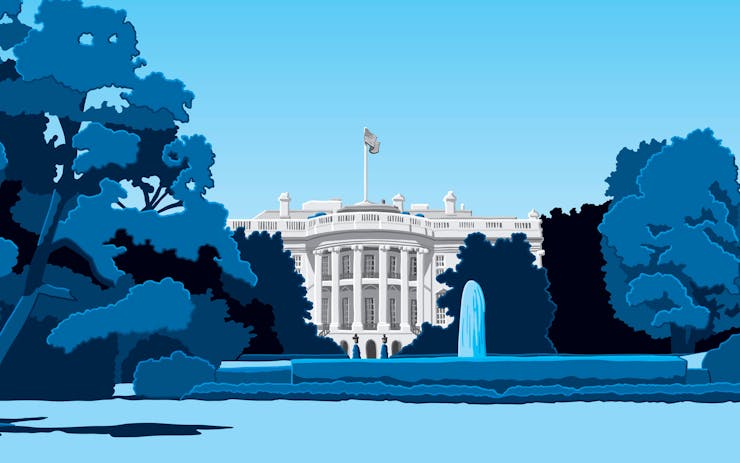This week saw the launch of legal cannabis sales across Canada, the largest country so far to legalize cannabis nationally. It’s big news for the Great White North, but it’s left a lot of people here in the United States wondering when our turn might come.
Here’s one way to help bring about change.
Between now and Oct. 31, the US Food and Drug Administration is accepting public comment on how cannabis should be classified under international drug treaties. A World Health Organization is set to meet next month in Geneva to discuss “the legitimate use, harmful use, status of national control and potential impact of international control,” of cannabis and other substances, including synthetic cannabinoids and fentanyls.
Global drug treaties continue to stand in the way of reform in the US—even when it comes to CBD.
“These comments will be considered in preparing a response from the United States to the World Health Organization (WHO) regarding the abuse liability and diversion of these drugs,” FDA’s associate commissioner for policy, Leslie Kux, wrote this month in the public request for comments. “WHO will use this information to consider whether to recommend that certain international restrictions be placed on these drugs.”
If this sounds complicated and bureaucratic, that’s because it is. But it matters. Not only is this one of the few opportunities you have to register official comments on drug policy directly with the federal government, but it’s also a chance to affect international agreements that stand in the way of the legalization here in the US.
State Rights. Great Rights.Cannabis is currently classified under global drug policy agreements as a Schedule I substance—the most restrictive category—just like it is domestically. Countries that have signed those international agreements are, in theory, prohibited from legalizing cannabis.
Already the international community is awakening to the need for cannabis reform. Earlier this year, the WHO Expert Committee on Drug Dependence (EDD) determined that pure cannabidiol, or CBD, should not be scheduled at all under international agreements. “CBD has been found to be generally well tolerated with a good safety profile,” the United Nations body found.
Yet the global drug treaties continue to stand in the way of reform in the US—even when it comes to CBD.
In June, the FDA approved Epidiolex, a purified CBD medication made by UK-based GW Pharmaceuticals, for the treatment of certain epilepsy conditions. That required the US Drug Enforcement Administration to reschedule the CBD-based drug—which the agency did in September. But the DEA left CBD itself in Schedule I, meaning the federal government still considers it illegal.
In the wake of those actions, an internal FDA memo went public that revealed the agency’s own findings suggested CBD shouldn’t be scheduled under the Controlled Substances Act at all—except for those pesky international drug treaties.
Shop highly rated dispensaries near you
Showing you dispensaries nearKyle Jaeger covered the story in-depth over at Marijuana Moment:
Studies demonstrated that “CBD and its salts… do not have a significant potential for abuse and could be removed from the [Controlled Substances Act],” the FDA wrote to the DEA in May.
But the letter also mentioned that the FDA had been advised by then-DEA Acting Administrator Robert Patterson that federally de-scheduling CBD altogether would represent a violation of international drug treaties to which the U.S. is a party.
In April, the DEA “asserted that the United States would not be able to keep obligations under the 1961 Single Convention on Narcotic Drugs if CBD were decontrolled under the CSA,” the FDA letter reveals.
Therefore, the FDA amended its recommendation, advising the DEA to place CBD in Schedule V, the least restrictive category under federal law, instead.
“If treaty obligations do not require control of CBD, or if the international controls on CBD change in the future,” the FDA wrote, “this recommendation will need to be promptly revisited.”
All of which is to say: International drug agreements matter.
You’ll notice, of course, that the DEA didn’t heed the FDA’s ultimate advice. Rather than reschedule all CBD under US law, the law enforcement agency rescheduled just Epidiolex, leaving CBD in Schedule I. (As the Marijuana Moment article notes, “the FDA and the DEA don’t always see eye-to-eye when it comes to marijuana.”)
Nevertheless, the global drug treaties provide cover for federal officials to continue to prop up the US drug war. Amending them in a way that deals with cannabis more reasonably would allow national governments like ours more leeway in charting their own course. And for a change, you actually have a chance to voice your opinion.
Whether the Trump administration will listen to it? That’s an open question.
Don’t delay—you’ve got until midnight Eastern Time on Oct. 31 to submit comments.





